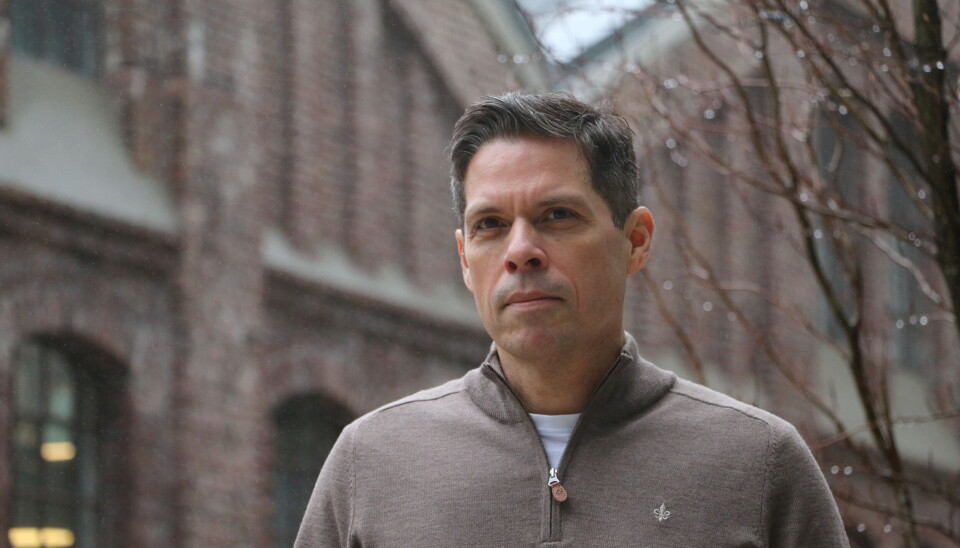Debatt ● Matthew Landers
Survey Democracy
Through surveys and arbeidsgrupper, our leaders know, with scientific detail, exactly what we—the governed—think and want. Pericles and Madison could not have imagined such statistical precision!


Denne teksten er et debattinnlegg. Innholdet i teksten uttrykker forfatterens egen mening.
In his account of the Peloponnesian war, Thucydides records a speech given by Pericles, the great theoretician and architect of ancient democracy, in which he extols the virtues of Athens’ idiosyncratic form of government, arguing that, unlike the political tendencies of other nations, Athenian democracy (demokratia) «favors the many instead of the few».
Pericles credits the Athenians for their willingness to view public discussion and debate as «an indispensable preliminary to any wise action,» instead of shunning public discourse as «a stumbling block in the way of action» (The Peloponnesian War 2.37.1 & 40.2). Although we are inclined to think of democratic power purely as the right of a people to vote, Pericles recognized that power exists as well in the ability of a people to debate and «judge» the issues of their day.
In the modern era, we have come to favor representative democracies, over the direct democracy of Athens. Our preference rests on the principle that indirect democracies are less susceptible to what James Madison calls the «violence of faction» (Federalist No. 10). To put it in contemporary language, Madison highlights an inclination among direct democracies to be commandeered by political factions (in minority, or majority), whose individual interests run contrary «to the rights of other citizens».
Upon this premise, modern states have opted for representative governments—republics and parliamentary democracies—for which wise leaders are elected by the people, and thereby invested with temporary and limited powers to make laws and choices that favor «the many instead of the few».
We do not have elected representatives with decision-making power on a voting body; but, admittedly, we are often given opportunities to provide feedback to our (unelected) leaders through the mechanisms of surveys and arbeidsgrupper.
Despite this shift from direct to indirect democracy, however, we have upheld the Greek belief that public discussion and debate are indispensable mechanisms for a healthy democratic process—supplementing the wisdom our leaders, not hindering their ability to act.
Last year, I wrote about the ideas of free academic discourse and democracy in the domain of higher education. I discussed the apparent conflicts between democratic values and the practices of the New Public Management style.
During the year that has elapsed since the publication of that essay, I have been reassured on multiple occasions—by my institution, at least, so I cannot speak for others—that there are democratic processes at work when critical decisions are being made.
We do not have elected representatives with decision-making power on a voting body; but, admittedly, we are often given opportunities to provide feedback to our (unelected) leaders through the mechanisms of surveys and arbeidsgrupper. We are encouraged to believe that these managerial devices function parallel to more traditional democratic processes, transporting our voices to the highest levels of governance.
I refer to this understanding of democracy—a form which neither Pericles, nor Madison would have recognized—as «Survey Democracy».
«Survey Democracy» operates on the premise that the idea and form of demokratia can be reimagined and streamlined into a form that is both more efficient and more representationally accurate. To accomplish both goals, «survey democracy» bypasses the inefficient and bulky mechanisms of casting votes and representation through election, going directly to the source—the people—for their opinions. Through surveys and arbeidsgrupper, our leaders know, with scientific detail, exactly what we—the governed—think and want. Pericles and Madison could not have imagined such statistical precision!
The only problem, of course, is that «survey democracy» is not democratic.
The only problem, of course, is that «survey democracy» is not democratic. The power to decide is not with the people. The power to decide is not even with their representatives. «Survey democracy» creates the illusion of demokratia (the people have power), giving the governed a false sense of agency and participation.
I liken it to the ‘feedback machines’ that we often see after leaving the security area at the airport. The machine in question—a disembodied proxy of an anonymous company—asks us to rate our experiences by pressing a button. In good faith, we register our feedback on the emoji-equivalent of a Likert scale and continue our journey. Perhaps we feel afterwards that we have participated in a bona fide democratic process; but, if we stop to reflect on the interaction, are we provided with any assurances that the feedback machine is connected to anything (beyond the needs of human psychology)?
Even if we assume that our own version of the ‘feedback machine’ is connected to something—a high-level arbeidsgruppe, or an administrative office—if the governed do not have the right to cast a vote (individually, or representationally), our opinions are nothing more than depersonalized data.
If our leaders care about our opinions (and hopefully they do), they can reflect on our feedback during the decision-making process; but they can choose to ignore the data just as easily. The governed cannot know that the feedback machine is connected. The process is not transparent and the governed have no authority to certify that their opinions are heard.
I liken it to the ‘feedback machines’ that we often see after leaving the security area at the airport.
Let us assume a best-case scenario, when our voices are heard. The process still cannot be called democratic. Certainly, any invitation to provide feedback is generous (especially in a hierarchy), but we should not conclude that the people exercise true political power as a consequence. Voting and representation matter precisely because they guarantee the governed access to real political influence.
«Survey democracy» cannot provide comparable assurances. It can only promise to seem like democracy when you are not looking directly at it.
I will conclude by saying that I am not arguing that the governance of universities should be directly-democratic, or even representationally-democratic. As a foreigner, I leave it to others to decide if «survey democracy» aligns with Norwegian values. I am suggesting simply that we should stop perpetuating the illusion of democracy, when the processes are anything but democratic. This illusion cheapens and disfigures the original idea. Worse, I suspect that acceptance of the illusion will lead to the weakening of real democracy at other levels of society.












Nylige artikler
25 prosent nedgang i doktorgradsavtaler
Varsler utredning etter fagskolekonkurs
Universitetet i Bergen vil berge logopedstudiet
«Kapitalelementet» vil svekke nøktern eiendomsforvaltning ved universitetene
Aasland ønsker seg mer kunnskapslekkasje
Mest leste artikler
Skal selge «siving-ringer» for flere millioner kroner i år
Student ble utestengt i to år etter tre tvilsmeldinger
Stjerneforskere måtte slutte etter kontakt med Epstein
Slutt for denne lønnede utdanningen: — Dette er så viktig
PST-sjef advarer mot spioner på Arctic Frontiers